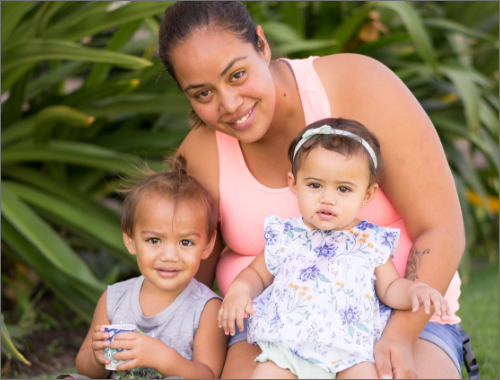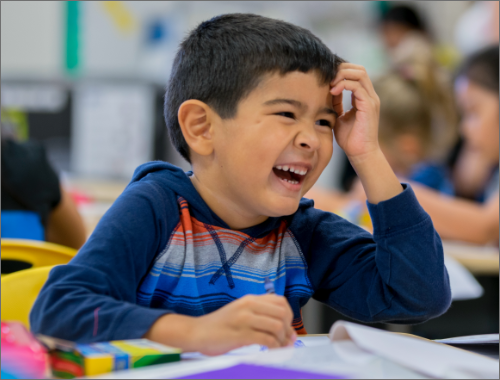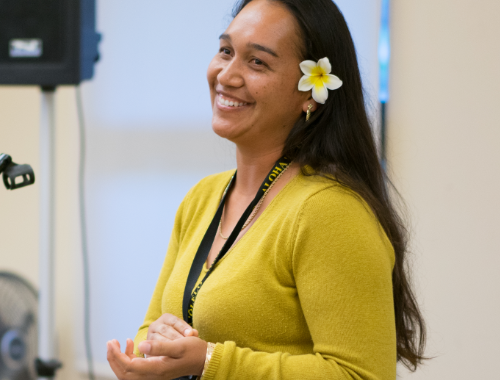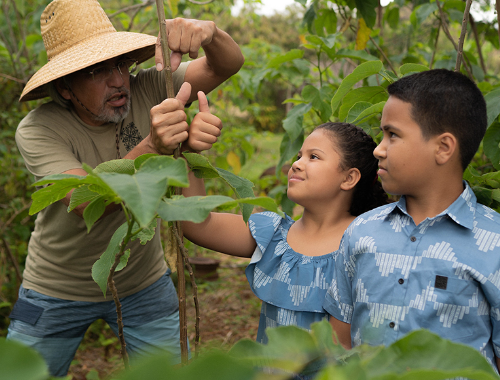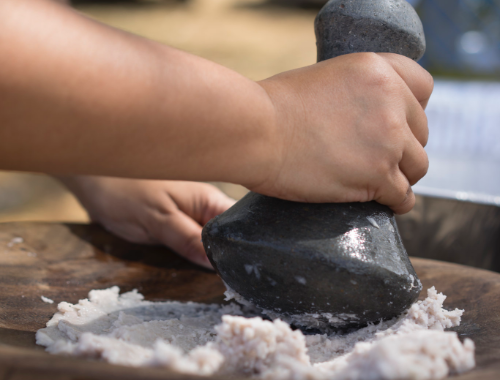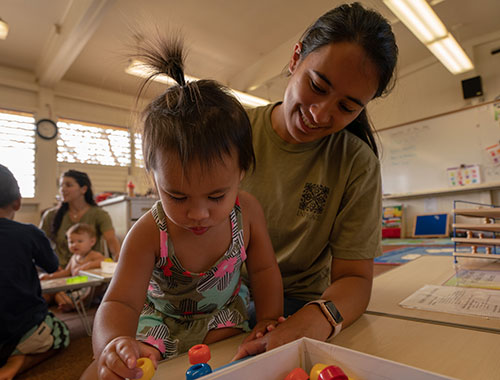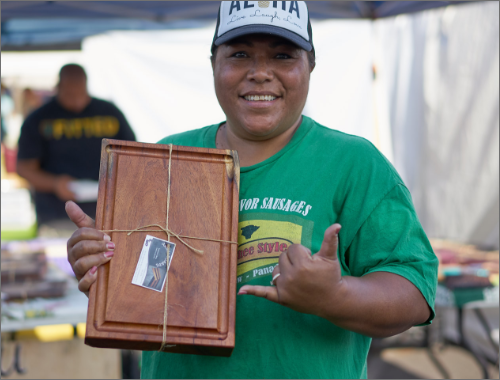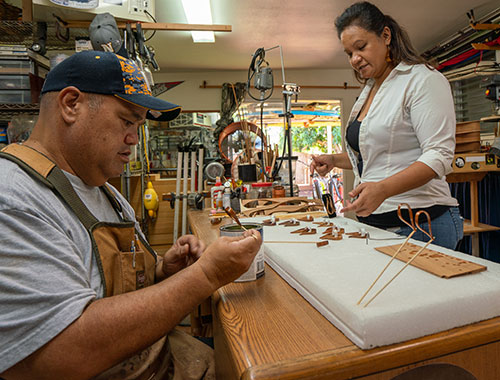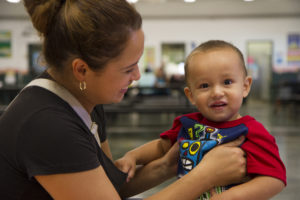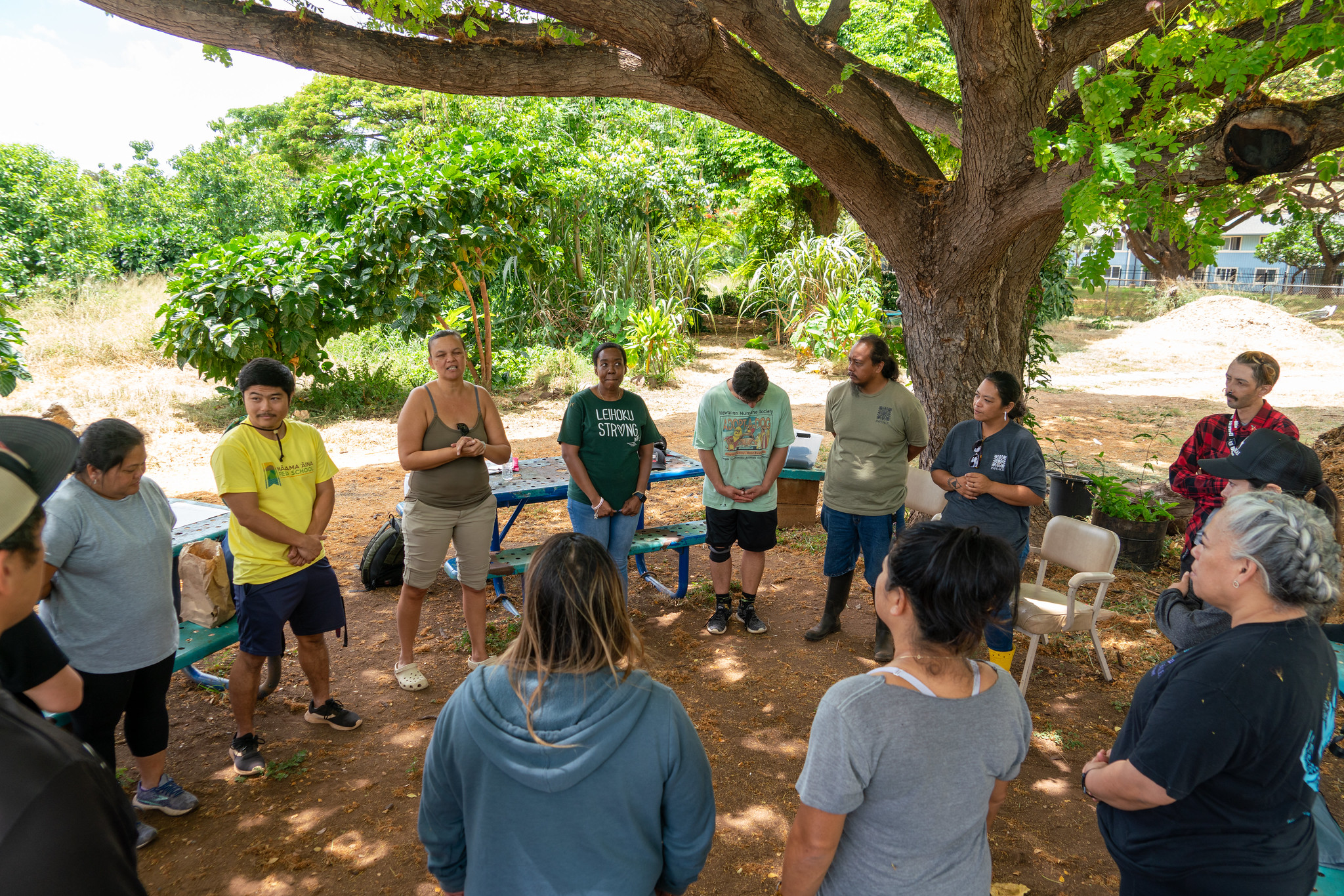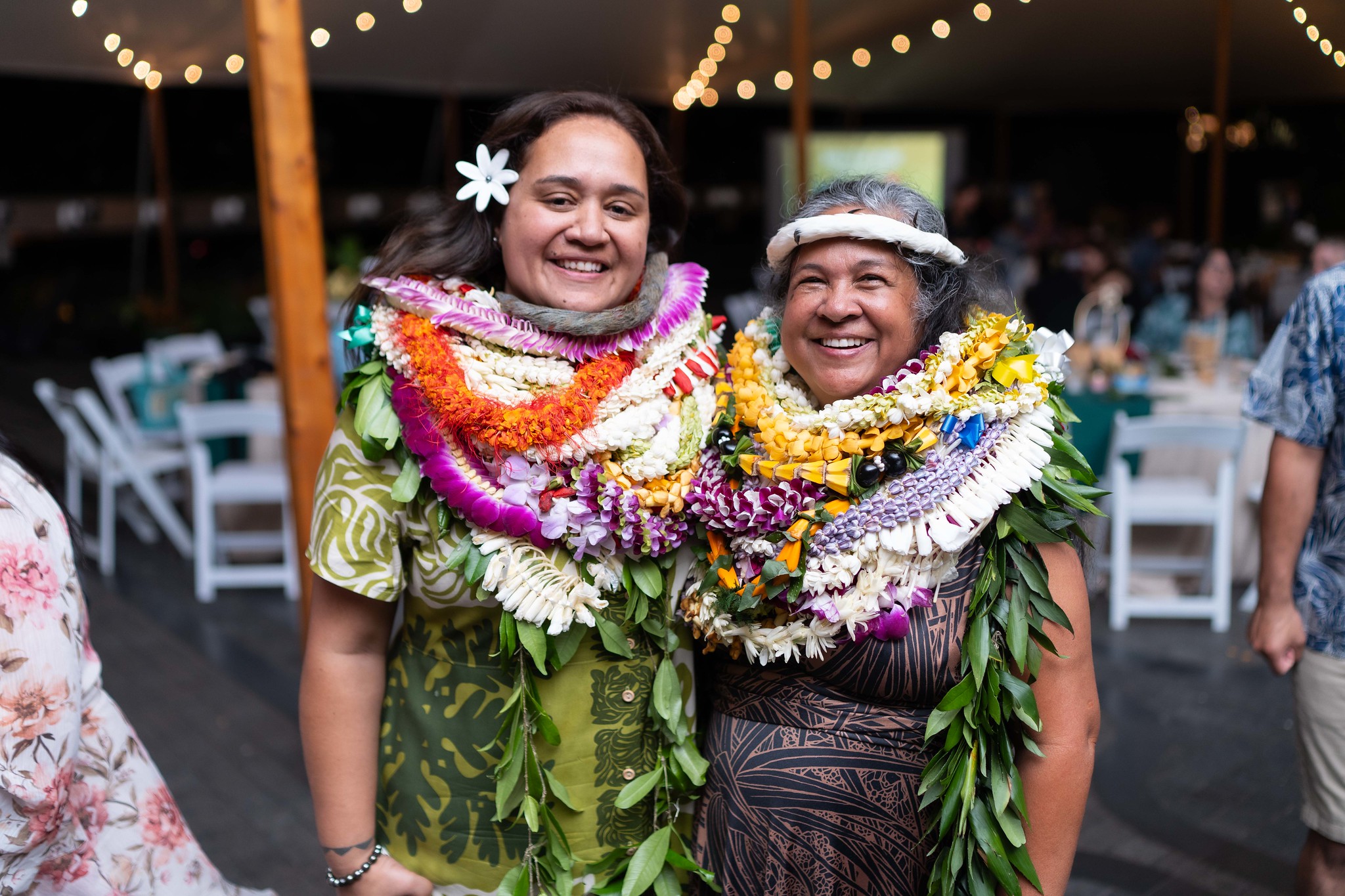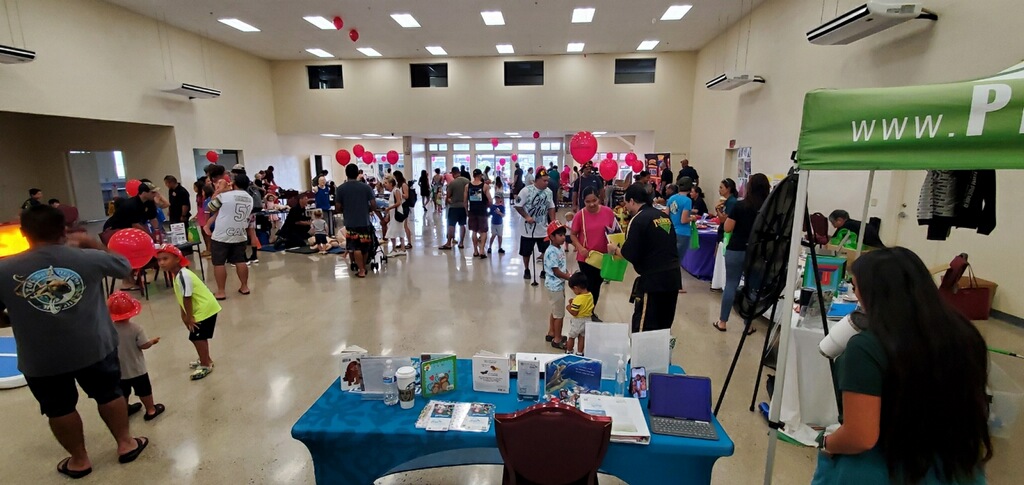The Indigenous Early Learning Collaborative (IELC) is a community-based inquiry project created by Dr. Tarajean Yazzie-Mintz, Founder and Principal Consultant of the First Light Education Project, in collaboration with the Brazelton Touchpoints Center (BTC). The W.K. Kellogg Foundation has generously committed $1.5 million to this 2-year project to support these indigenous community projects. INPEACE’s Keiki Steps program has the honor of being one of four selected Indigenous communities in the IELC, representing Hawai‘i and our lāhui kānaka ‘ōiwi. INPEACE joins three other indigenous community serving organizations as part of the IELC: the Wiikwedong ECD Collaborative of Keweenaw, Michigan; Wicoie Nandagikendan, an immersion program in urban Minneapolis; and Daybreak Star of Seattle, Washington.
During Dr. Yazzie-Mintz’s first Zoom meeting with the IELC partners, she spoke passionately about her goals and dreams for the project. Her innate drive for improving indigenous education programs and systems was palpable as she methodically detailed her project. Tarajean’s infectious laugh and the soothing cadence of her voice was something that quickly made us comfortable. She brought wisdom, and a calm and regal demeanor that can only be described as kupuna.
Joelfré Grant, Assistant Director of Partnership and Professional Development at BTC, is assisting Tarajean with the IELC project. Joelfré supported a total of 18 INPEACE staff and community members through the Brazelton Touchpoints Approach virtual training for eight weeks in the Fall of 2021, paired with a six-month term of reflective practice sessions monthly. Through this process our staff has become more intentional about their assumptions as early learning providers, parents, and community members.
Tarajean and Joelfré guided and mentored our team through the visioning process of our community-based inquiry project: “E Kolo Ana No Ke Ēwe I Ke Ēwe” (The rootlet will creep toward the rootlets). This inquiry project is based in a simple yet profound question: What is Hawaiian identity? At its core, the project will work to understand the nexus between identity and positive outcomes; more specifically, identity and the impact on the educational outcomes of indigenous students. The project is very complex and as a collective we understand clearly that the process will be ongoing as we continue to learn, re-learn, and un-learn to discover our ʻōiwi selves, use the knowlege and strategies gained along the way, and refine our Keiki Steps curriculum framework.
While our team is currently in the building phase of our equitable partnership with the IELC, we are drafting a survey around current understanding of cultural identity as well as defining Hawaiian cultural identity, to be shared with staff, families and community partners. We are also in the process of engaging our communities to create an educational cultural resource inventory to be used as part of our curriculum. Additionally, we are identifying and partnering with kūpuna, kumu, and loea (experts/masters) to provide Hawaiian cultural professional development opportunities for all Keiki Steps staff to implement our Hawaiian culture-based educational Family-Child Interaction Learning (FCIL) Preschool program.
We are grateful to our cousins of Moku Honu (Turtle Island, the North American continent) for supporting our journey to recognizing, embracing, expressing, and welcoming our ʻōiwi selves into our educational spaces.
Ike aku, ʻike mai. Kōkua aku, kōkua mai. Pēlā ihola ka nohona ʻohana.”


